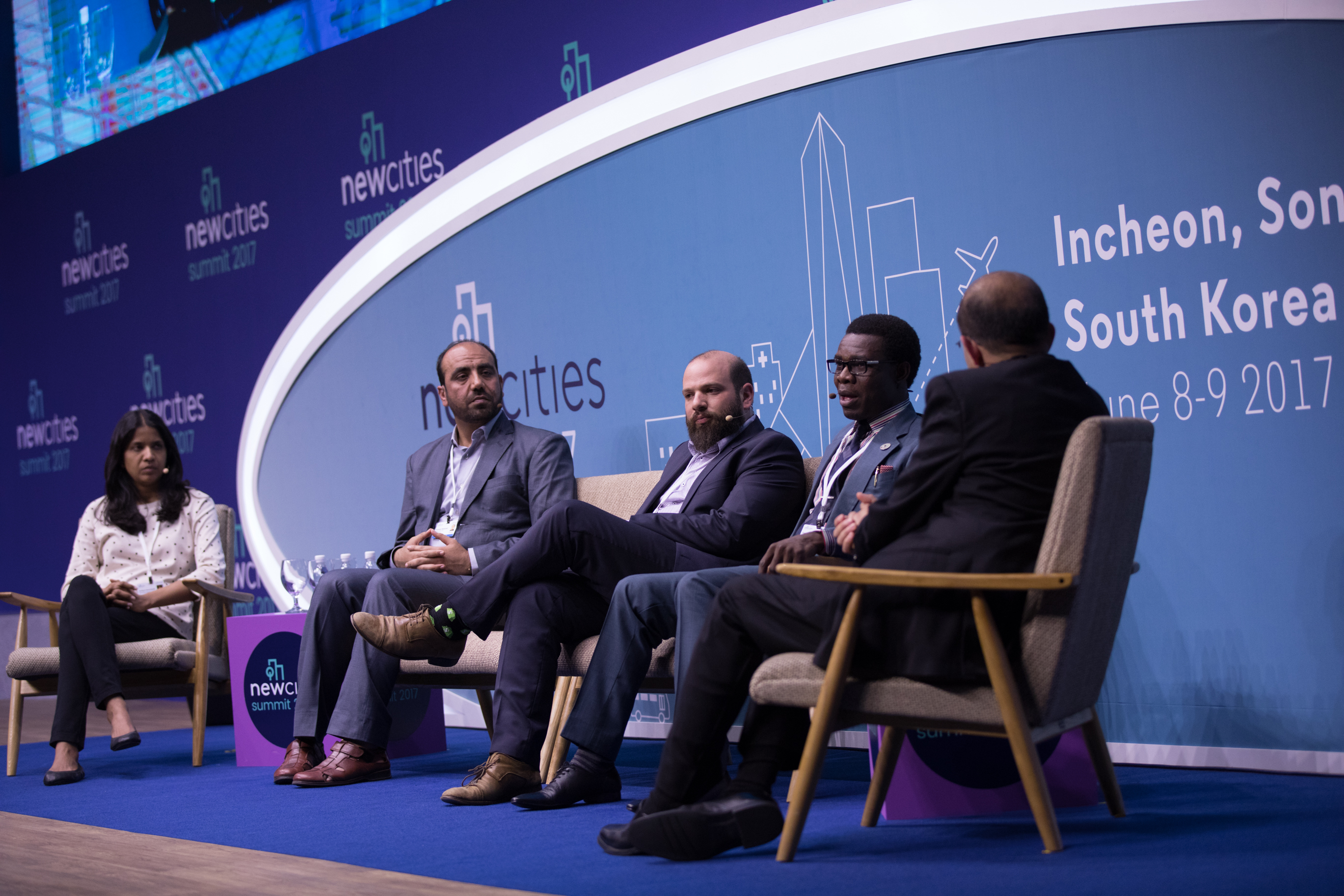
How to Build an Inclusive Urban EcoSystem
July 19, 2017 — Blog
This post is part of our Thriving Cities discussion series, following the sixth edition of the NewCities Summit in Incheon Songdo, South Korea in June 2017.
Despite its positive impact on the global economy, urbanization has deepened endemic inequality, as well as spatial, social and economic exclusion. Empowering cities and their citizens is crucial to ensuring that urban environments of tomorrow provide better opportunities and improved living conditions for all.
“Inclusivity in cities is an issue that is timely but also timeless,” said Archana Vemulapalli, Chief Technology Officer in Washington, D.C. at the opening of the panel.
What are the best examples of inclusive cities? Does technology have the potential to include the most marginalized in the decision-making process? Can cities become laboratories for necessary change?
Dr. Tunji John Asaolu is the Chairperson of the Committee on Social Affairs and Health at the African Union’s Economic, Social and Cultural Council (ECOSOCC). He said: ‘‘When you talk about a city that is inclusive, you need to think about its institutions such as a good and sound education system.” He added, “you also need to think about access and affordability to basic amenities: an environment where the poor and the rich have equal access to water and electricity.”
Vemulapalli responded, offering differing definitions for inclusivity and diversity. “You may have diverse representation of groups in a city, but if you don’t create opportunities for inclusion, you end up with segregation and groups that are left out,” she said.
Eyal Feder is CEO of ZenCity, a tech startup that gathers data from social media, municipal platforms, and 311 telephone calls to provide city governments with real-time feedback and suggestions on city services. ZenCity was also selected by NewCities as one of this year’s Global Urban Innovators. “Inclusivity starts from listening to the needs of the people,” Feder said.
Dr. Asaolu added that it is technology that makes this possible. “There is no way to keep technology out of an inclusive city,’’ he said.
Vemulapalli concluded the panel, calling upon cities to adopt inclusion as one of their core values and putting forward that social exchange leads to collaboration, which leads to innovation. Ultimately, inclusivity is the foundation for success in the city.